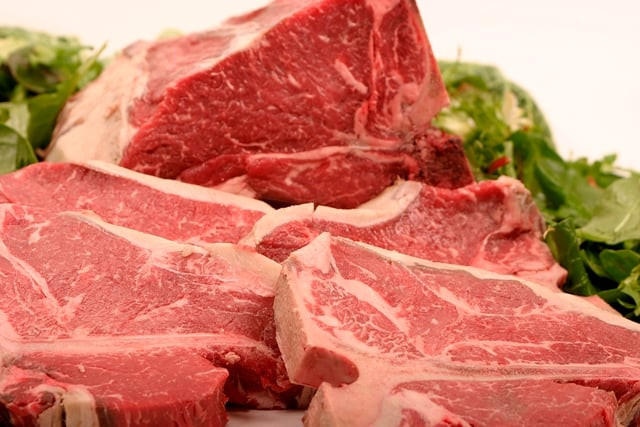Make sure there is no water dripping from the meat, warns authorities
Officials say that an electric motor pumps water into the meat to increase the weight and make it appear fresh.

In Orangi, New Karachi, before the cow is skinned and cut into pieces to be sold to retailers, a water pipe is expertly fixed to one of the veins in the carcass. An electric motor pumps water into the meat, which swells and thus becomes ‘prettier’.
“This is what we have come to call pressure meat,” said Syed Shujaat Hussain, the New Karachi assistant commissioner. “The practice is so common that we don’t even know how much of such meat is actually sold in the market.”
The size of the market for such meat could be gauged from the recent raid at an unregulated slaughterhouse in New Karachi. “We seized over 18,000kg from there in one night.”
The meat was sent to the zoo animals as it was no longer fit for human consumption, said Hussain. “We have been told that people over the age of 25 years can’t easily digest such beef.”
Pressure meat
The practice of pumping water in meat became common two years back in Karachi. While the term ‘pressure meat’ has been coined locally by the officials, it is prevalent in other parts of the world as well.
Water is used to increase the weight of the meat, which can go up by 25 per cent. Officials said that this is one reason why people complain that the meat has shrunk in weight after being cooked, adding that water-pumped meat appears to be fresher.
Loopholes in the law, unregulated slaughterhouses and laziness of consumer groups, are all contributing factors to butchers cheating with the meat.
But pumping water into the meat cannot be done by anyone- it requires practice. “The heart is used for the purpose,” said an official. “All the blood is drained out when the animal is slaughtered. The nose of the water pipe is affixed with the jugular vein and high-powered motor is used to pump it into the veins.”
Officials said that the real problem is contamination as dirty water is often used. “This can cause many illnesses.”
Unchecked business
These slaughter houses are located in volatile places like Surjani, Buffer Zone and Orangi, where the writ of police is often weak. “Even if the consumers suspect foul play, they do not complain to the police,” said Hussain.
Under the Animal Slaughter Control Act 1963, police can arrest people running unregulated slaughterhouses. “There is no mention of ‘pressure meat’ in the Act but authorities can still take action.”
The Karachi Metropolitan Corporation’s (KMC) veterinary executive director, Mukhtar Hussain, said that the deputy and assistant commissioners no longer have magisterial powers which allowed them to issue arrest warrants.
“The police and public will need to step forward as well to bring an end to this business,” said Mukhtar. On its part, the KMC has asked butchers at the two officially-run slaughterhouses to cut the carcass into four pieces so that the water in the veins is drained out. Consumers only have one option to save themselves from eating such meat. “Whenever you go to buy meat, observe it closely to make sure that water is not dripping from it.”
Published in The Express Tribune, May 14th, 2012.



















COMMENTS
Comments are moderated and generally will be posted if they are on-topic and not abusive.
For more information, please see our Comments FAQ